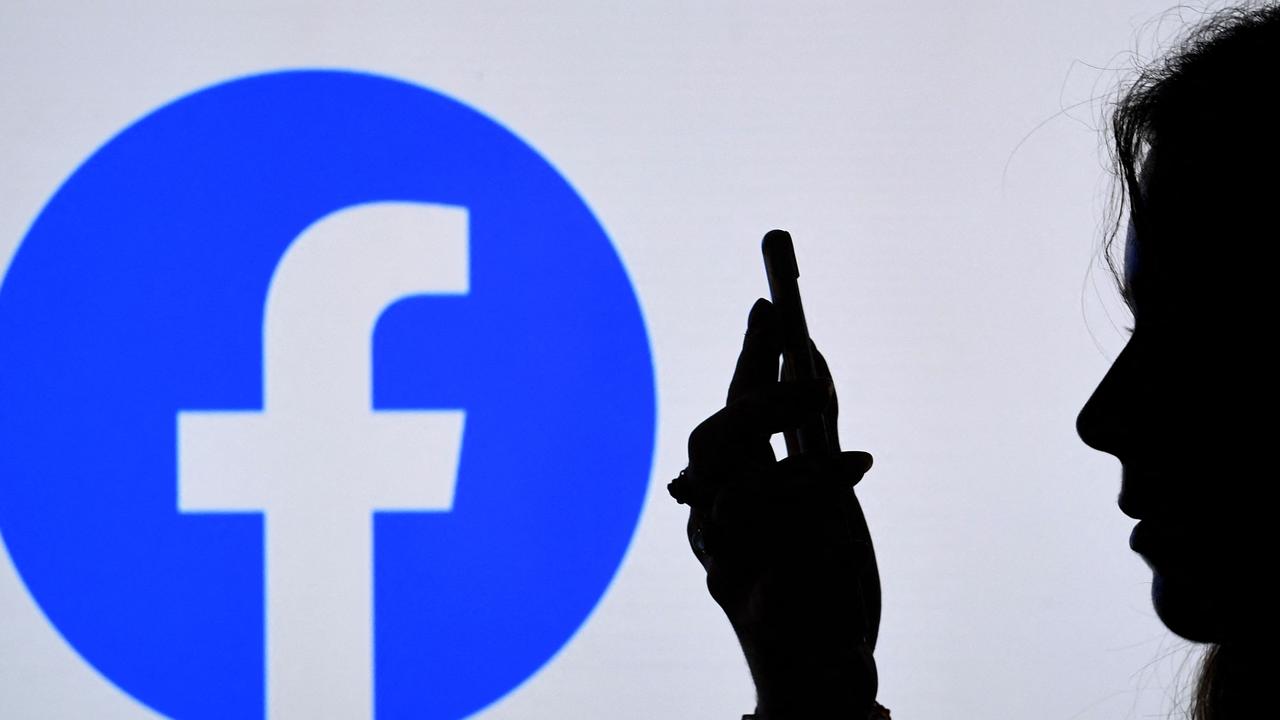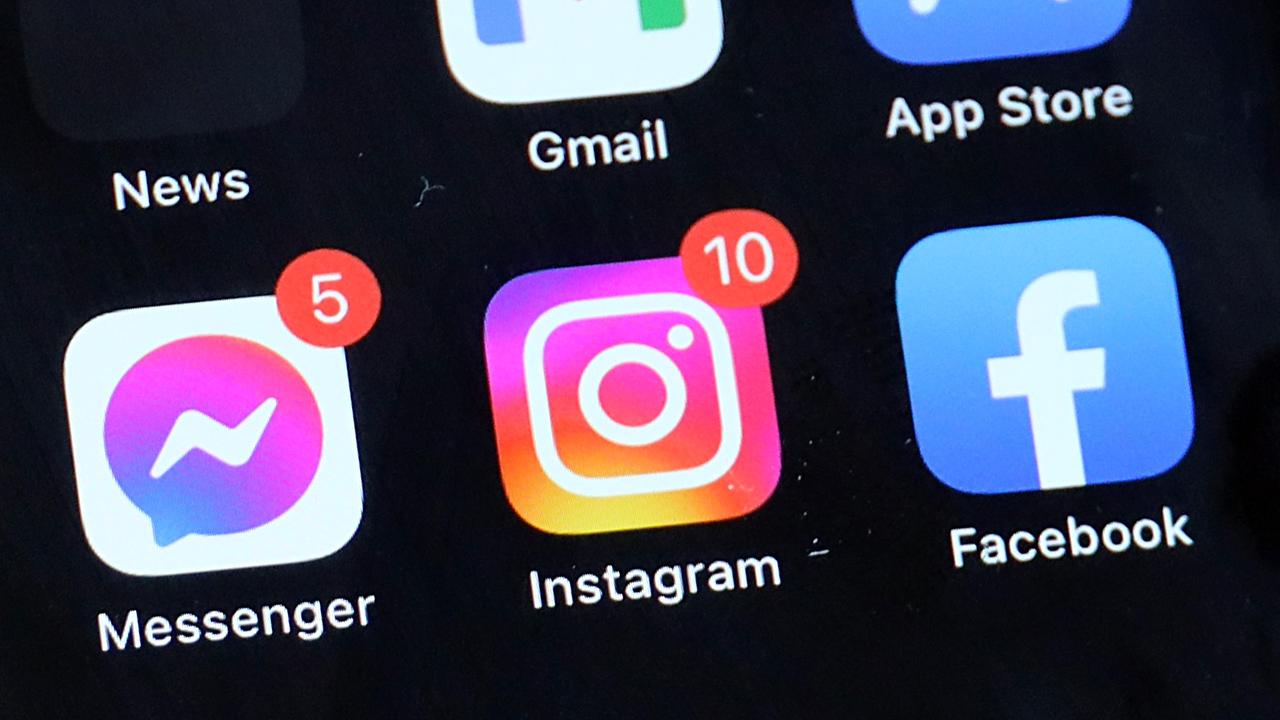Tech expert warns kids shouldn’t have a phone till they are 14
A person that used to work for Facebook’s parent company Meta has issued a dire warning, saying the tech giant knows its algorithms are damaging the health of young kids and teens

READING LEVEL: GREEN
Aussie kids shouldn’t be allowed to have a smartphone until they turn 14 due to the very real health risks of social media, a tech expert has warned.
Research by Meta, the company behind Facebook and Instagram, has shown kids are at risk of mental and physical health problems when they are allowed to use platforms like Instagram and Facebook as much or as often as they like.
Whistleblower and former Meta worker Frances Haugen said she was “really concerned about kids” being affected by harmful algorithms and notifications.
Ms Haugen said Australia had failed to keep up with countries like the US in fighting the damaging health effects of social media and smartphone use in kids.
Some of the biggest health problems kids were facing included sleep deprivation, addiction, anxiety and poor mental health.
Ms Haugen said there was a growing movement in the US called “wait for eight,” where young children were encouraged to make a pledge that they would wait until they reached Grade 8, or 14 years old, before getting a phone.
This approach was helping to prevent against peer pressure and meant parents didn’t feel bad about saying no to their kids having a phone at a younger age, Ms Haugen said.

Ms Haugen said Australia had been really good at addressing many aspects of online safety for kids but that it needed to focus on social harms caused by smartphone use.
“Not all kids will get contacted by a predator, but almost all kids will struggle with sleep deprivation, almost all kids will struggle with how compulsive it is … or deal with anxiety, because they’re overstimulated,” she said.

Ms Haugen said Meta did not mean to cause harm to kids on purpose, but its algorithms didn’t consider the full impact of pushing a young person to view content that could fuel eating disorders, anxiety or depression.
She said Facebook was aware sending kids notifications during the school day led to them being distracted, anxious and not being able to focus on school work.
Documents written by Meta have shown the company has known about these harms for some time. One document talked about “problematic Facebook use,” and explained smartphone notifications were leading to difficulty paying attention and hyperactivity among teens. It also explained that notifications “reduced productivity and wellbeing”.

Psychologist and digital wellbeing expert Jocelyn Brewer said she would “love” the community to shift toward waiting until a child was in high school before they got a phone.
But she said students should learn the social and emotional skills needed for participating in online spaces from an earlier age.
“This has to start at 7, 8 and 9-years-old,” she said.
“Everything we learn takes practice.”
Ms Brewer said kids should be taught these skills under parent and teacher supervision. They should also be taught about how social media use affects the brain. Teaching in this way, instead of banning kids from using the tech, helped kids make better choices online.
“If you say to a teen, ‘this is banned,’ it makes it something they want,” she said.
“Rather than get them off-side, we can explain to kids time is a non-renewable resource … are you okay with paying these platforms with it?
“That gives kids autonomy to make better choices.”

In January, Meta unveiled new protections to give teens “more age-appropriate experiences” on its apps.
The company announced it would also be automatically placing teens into the “most restrictive content control settings” on Instagram and Facebook, which would reduce their exposure to sensitive content.
Meta said it had also quadrupled its safety and security staff to more than 40,000 since 2016 and had been blocking “millions of fake accounts from being created every day”.
If you are concerned by anything raised in this article, you can call the Kids Helpline on 1800 55 1800.
POLL
GLOSSARY
- whistleblower: someone that raises the alarm about something concerning or dangerous in an organisation
- algorithms: a set of command that must be followed by a computer program in a problem-solving operation or calculation
- sleep deprivation: not getting enough sleep, which causes health problems including lack of concentration and alertness
- addiction: when you have a strong urge or need to do something even if you know it is doing you harm
- compulsive: resulting from an irresistible urge
- problematic: causing problems
- overstimulated: when your sense become overloaded with information and you find it difficult to calm down
- productivity: ability to get work done
- non-renewable: something you can’t get back
- autonomy: independence
EXTRA READING
How to balance online and offline fun
Call to quit couch culture for kids
TikTok biggest time-waster for kids
QUICK QUIZ
1. What are some of the health impacts caused by using a smartphone and social media?
2. When does psychologist Jocelyn Brewer believe kids should start learning skills to help them navigate online spaces?
3. What is the wait for eight movement?
4. How are notifications harming kids?
5. What is “problematic Facebook use”?
LISTEN TO THIS STORY
CLASSROOM ACTIVITIES
1. Wait until eight
As a young person that may or may not already own a smartphone or would like to own one, can you understand what these experts are warning you about?
The main arguments as to why they can be harmful to young people are listed below – write a statement next to each of these explaining how you could prepare and limit yourself when you own a smartphone.
- Online predators could attempt to contact you:
- Addicted to the device leading to over stimulations and sleep deprivation:
- See inappropriate content:
- Misleading images leading to poor body image:
- Increase in anxiety and depression:
- Constant notifications distracting you from school and other tasks:
Time: allow 30 minutes to complete this activity
Curriculum Links: English, Health and Physical Education, Digital Technologies, Personal and Social, Critical and Creative Thinking
2. Extension
What controls could you and your parents negotiate to ensure that you are not on the smartphone too much or too long to lead to some of the social harms outlined above?
Write a contract of appropriate smartphone use for a person your age.
Time: allow 20 minutes to complete this activity
Curriculum Links: English, Health and Physical Education, Digital Technologies, Personal and Social, Critical and Creative Thinking
VCOP ACTIVITY
Read this!
A headline on an article – or a title on your text – should capture the attention of the audience, telling them to read this now. So choosing the perfect words for a headline or title is very important.
Create three new headlines for the events that took place in this article. Remember, what you write and how you write it will set the pace for the whole text, so make sure it matches.
Read out your headlines to a partner and discuss what the article will be about based on the headline you created. Discuss the tone and mood you set in just your few, short words. Does it do the article justice? Will it capture the audience’s attention the way you hoped? Would you want to read more?
Consider how a headline or title is similar to using short, sharp sentences throughout your text. They can be just as important as complex ones. Go through the last text you wrote and highlight any short, sharp sentences that capture the audience.

